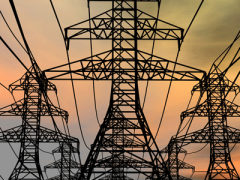Climate researcher who bridges different disciplines
Spinoza laureate Detlef van Vuuren: “May the future be not only sustainable, but also just”
The “greenhouse accountant of the world,” Dutch newspaper de Volkskrant has called him. A deserved qualification for Detlef van Vuuren: his research has contributed to the Paris Climate Agreement and plays an important role in various IPCC reports. Today Van Vuuren has won the Spinoza Prize - the highest award in Dutch science. “There are attractive solutions which are not only economically beneficial, but would also improve the lives of billions of people worldwide.”
Humanity faces the great challenge of managing the current global climate and sustainability crisis. To achieve this, knowledge from socio-economic, technological and natural sciences is needed. The research of Detlef van Vuuren (1970), Professor of Integrated Assessment of Global Environmental Change at Utrecht University’s Copernicus Institute of Sustainable Development and a climate researcher at PBL Netherlands Environmental Assessment Agency connects these disciplines through the IMAGE model. For this groundbreaking scientific work, Van Vuuren receives the Spinoza Prize. The prize is accompanied by a monetary award of 1.5 million euros to be spent on scientific research and knowledge utilisation.
Relevant and academic
Combining his two roles – senior researcher at PBL Netherlands Environmental Assessment Agency and professor at Utrecht University – enables Van Vuuren to turn his IMAGE model research into practical solutions. “I consider myself fortunate to have been able to combine my research at PBL with a chair at Utrecht University.” He is a passionate and successful proponent of combining academic and policy-relevant research, and is living proof that it is possible to work mostly outside the academic world and still do research of great scientific and societal importance. “Because I combine scientific research and applied policy research, what I do becomes immediately relevant.”
Highest Dutch scientific award
“At PBL Netherlands Environmental Assessment Agency we are very proud that Detlef van Vuuren has won the highest Dutch scientific. It is a recognition of his top position in international climate science,” responds PBL director Marko Hekkert. “We are delighted that someone with his scientific qualities works with us and contributes to the development the sort of policy-relevant knowledge, for which the PBL was founded. This is a testament to the quality of his work and the importance of this kind of knowledge.”
Attractive solutions for climate and humanity
The impact of Van Vuuren's work with the IMAGE model goes a long way. His research has contributed to various reports of the Intergovernmental Panel on Climate Change (IPCC), the climate panel of the United Nations. These reports form the foundation of international climate negotiations and policies. For instance, his team used the IMAGE model to design the standard scenarios for limiting warming to 1.5 °C and 2 °C, which played an important role in the Paris Climate Agreement. The Spinoza Prize selection committee describes Van Vuuren's research as ‘highly relevant and broadening in the discussion on climate, biodiversity and the Sustainable Development Goals of the United Nations’. What goals and ambitions has he set for himself? “We need to find solutions to sustainability challenges that are both effective and fair. It's incredibly unwise that we are heading towards a global average temperature that will adversely affect billions of people. This will also have tremendous economic costs. Fortunately, there are attractive solutions that are not only economically beneficial, but would also improve the lives of billions all over the world.”
The importance of climate justice
This touches on a theme that is becoming increasingly important in his work: justice. His model accounts for variables such as energy and land use, emissions and demographic changes. This approach enables the development of scientifically-grounded scenarios which explore the future impact of climate policies. Similar scenarios can also be developed for other sustainability issues such as biodiversity loss and air pollution. “It's about an integrated approach. In the past we mostly focused on the end goals: demonstrating how they can be achieved, proving it's possible to stay within 1.5 °C and certainly far below the 2 °C of warming, and also showing how appealing this can be from many different perspectives. But meanwhile we have spent far too little attention to justice and how to distribute responsibility for climate action.” In this context, Van Vuuren points out the role coal plays in climate change. “Our research shows that phasing out coal is the "cost-optimal" solution. But the majority of coal use takes place in India and China! Economists have often said: okay, but wealthy countries can then pay for reductions elsewhere. But does this actually happen? If you only focus on cost-optimal solutions you can create situations which are simply unfair. You cannot expect countries to take the lead in solutions to problems caused largely by other countries. Climate justice must therefore play a much more central role in our scenarios, so we can outline future scenarios which are not only sustainable, but just too.”
Real knowledge is being controversialised
Van Vuuren's greatest concern is that science is increasingly called into question. “If we were living in a world where we acted exclusively on scientific facts it might still be tricky to achieve the goal of less than 1.5 °C of warming, but I'm convinced we wouldn't exceed the 2 °C target. Unfortunately, at this moment real knowledge is being controversialised. Alternative facts are everywhere. But I'm optimistic by nature. Our society doesn't always operate in the most sensible manner, but I've also seen how developments can gradually move in the right direction, potentially aided by scientific advice.”
Stevin prize for governance researcher Paul ‘t Hart
In addition to the Spinoza Prize, NWO also awards the Stevin Prize annually for research of great societal importance. This year the winner is Paul 't Hart. In addition to being a professor of public administration at Utrecht University, he is also a member of the PBL supervisory board. In the words of the Dutch agency for scientific research NWO: “'t Hart has trained thousands of civil servants and advised hundreds of governments and office holders at local, national and international level. He has an impressive network and an excellent reputation within and beyond the country's borders, as a researcher and as a policy advisor. 't Hart is considered to be one of the most influential public administration scientists in the Netherlands and is the initiator of a new movement: positive public administration.” PBL director Marko Hekkert reacts: “We are very happy to have Paul 't Hart's insights in the supervisory board. We reap the benefits of this during every meeting we have!”




